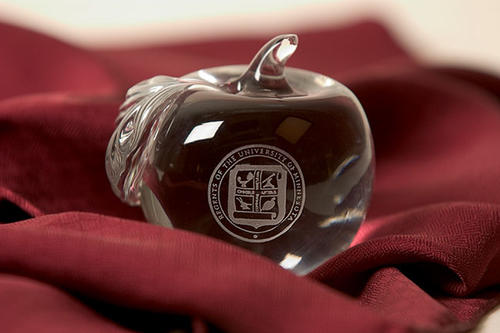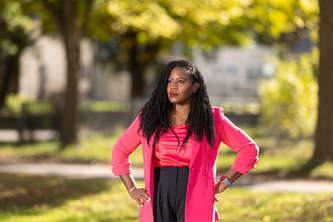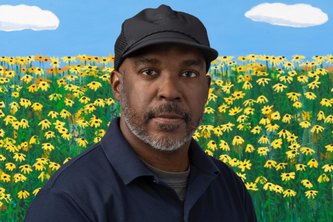
Students, faculty, staff and the state of Minnesota stand to benefit from the University of Minnesota’s FY18-19 biennial budget request, approved today by the U of M Board of Regents.
Building on successful partnerships with the state, and the University’s unique expertise and leadership, the request to the Minnesota Legislature focuses on four areas:
- Student success. Advancing the long-term success of Minnesota’s students by improving retention and graduation rates, and as a result making college more affordable for students and families system-wide.
- MnDRIVE. Fueling research that advances the state’s most promising industries and improves Minnesotans’ health, contributing to economic development and a thriving state and society.
- Core mission support. Ensuring academic and operational excellence across all University system campuses.
- NRRI Applied Research for Economic Development. Enhancing strategic research programs at Duluth’s Natural Resources Research Institute (NRRI) in three areas critical to Minnesota: minerals, mining and water; energy and the environment; and forest products and bioeconomy.
“This request is a reflection of our values, vision and commitment to students and families across the system and to Minnesota’s health, prosperity and quality of life,” said Board Chair Dean Johnson. “It’s fiscally responsible and aligns with the strategic goals of the University, including addressing our state and world’s grand societal challenges.”
More specifically, the request will increase access to high-demand science, technology, engineering and math (STEM) fields; grow the admissions pipeline for underrepresented Minnesota students; and expand Minnesota’s Discovery, Research and InnoVation Economy (MnDRIVE) initiative by supporting research on four areas: clean and abundant water, eliminating disparities, cancer care and treatment and big data.
This year’s $126.2 million request reflects a 10.1 percent increase in base funding (biennium to biennium).
Additionally, the request includes $21 million over the biennium to restore funds for critical health training and services statewide, formerly supported by UCare, and to pay for enhanced services and operations of Minnesota’s new, expanded Bell Museum and Planetarium, scheduled to open on the St. Paul campus in summer 2018. These items related to prior legislative session activities.
Focusing on the campus experience
The Board took action on the 2016 six-year capital improvement plan and 2017 state capital request. Both items set priorities and direction for continued capital investment and funding support from the state.
The $1.6 billion six-year capital plan advances strategic plan goals:
- Maximize the effectiveness and extend the life of the U of M's 29 million square feet of infrastructure through the use of Higher Education Asset Preservation and Replacement (HEAPR) funds.
- Advance the health sciences by improving educational and clinical research spaces for the Medical School and the other Academic Health Center colleges. This includes building an integrated Health Sciences Education Center.
- Expand capacity in STEM programs to meet student demand. A new Chemistry and Advanced Materials Sciences (CAMS) building on the Duluth campus and investments in research and laboratories on the Crookston and Twin Cities campuses are included.
- Reposition libraries for the 21st century. Improved access to materials and creating flexible teaching, learning and collaboration spaces guide these plans.
“Taken together, the projects support delivery on our mission of teaching, research and outreach,” said University President Eric Kaler. “Continued capital investment in these areas will advance work that addresses our state’s and world’s grand challenges and enhance the experience for all students.”
The $317.6 million 2017 state capital request consists largely of projects carried over from the 2016 legislative session, which did not pass a bonding bill. A list of these projects can be found in the docket materials for the Facilities, Planning and Operations Committee.
Regents also approved funds for new facilities on the Twin Cities campus, including a competition-level outdoor track and field facility near the Athletes Village. The track facility is a key component to the University’s continued commitment to gender equity and Title IX compliance. To accommodate the track, the University will need to relocate the sports bubble and field, which serves thousands of Twin Cities campus students in intramural athletics.
Additionally, the Board approved demolition of the Electric Steel and Kurth elevators. Options will be explored to integrate elements from the site with other project components to display and interpret the property’s historic significance. The University received comments and feedback from students, faculty, staff and community members who want to preserve the elevators. The input informed the Board’s decision.
The Board also:
Participated in a work session regarding undergraduate admissions at all five campuses. Regents discussed the goals and principles used in managing enrollment across the University system, as well as the holistic review admission process.
Discussed plans for creation of a system-wide strategic plan, with a goal to better align institutional resources and leverage the University’s strengths as a system.
Reviewed public safety efforts, including law enforcement and emergency management resources and outreach, on University campuses across the state.
Advanced upgrades to the Soils Testing Research and Analytical Laboratory. Located in the Crops Research Building on the St. Paul campus, funding for the $3 million project comes from a state investment in agricultural productivity through the Agricultural Research, Education, Extension, and Technology Transfer Program (AGREETT).
Agreed to host Major League Soccer’s Minnesota United for home games at TCF Bank Stadium during the 2017 and part of 2018 seasons. The team will pay a rental fee for each game and make contributions to the U’s Good Neighbor Fund.
Approved the appointment of Brian Burnett as the new senior vice president for finance and operations. Burnett, who comes from the University of Missouri system, will begin on November 17.
Recognized the University band program, which has served the Twin Cities campus for 125 years, with an Award of Outstanding Merit.
Read President Eric Kaler’s report to the Board here.
The Board will meet again Thursday, December 8 and Friday, December 9. For more information, including meeting times and locations, go to the Regents website.
- Categories:
- Campus Affairs





